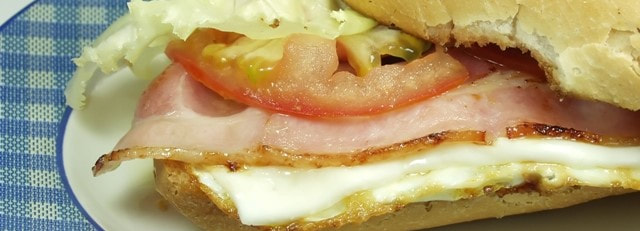|
Warning – contains swearing
Gluttony, often mistaken for greed (part 1 and part 2), is an excess in eating or drinking (hunting for definitions brought me to crapulous, a brilliant word). Being bereaved is rough, and sometimes we need that extra bit of comfort. I know that I took to comfort eating, comfort drinking and comfort shopping as coping mechanisms when Tim died. This piece isn't about shaming or guilting people for their choices. Being bereaved is hard enough, without a blogger telling you what to do. It's just here if this is something that you are thinking you want to consider, or to change. Comfort eating, emotional eating or stress eating Food is my go to when I'm grieving, depressed or stressed. And it's generally not classy food – it's cheese straight out of the fridge, toffee popcorn in handfuls, or crisps in huge bags. In these situations, I also don't really notice what I'm eating, I just notice when I reach for the next handful and it's gone. I have ADHD, and impulse control is not one of my strong points – if I see food in the cupboard, I want it and I don't want to wait. Comfort eating when we are low feels like a form of self-care, because it triggers the reward systems in our brains, and makes us feel better, at least for a moment. And in the early days of grief, when I had no appetite at all, getting calories in any form was a good thing. Not eating properly, if it lasts long term, can have an impact on our mental and physical health. Guilt, shame and regret can be part of our feelings of grief anyway, and if we are feeling guilty about what we eat, that could just pile on top. If you want to make a change Cooking and eating after loss is hard, whether it's the challenge of cooking for one rather than two, the additional costs of food shopping for one rather than buying in bulk, or simply a loss of appetite or missing what used to be a shared pleasure. Meal kits for one, or even just a new cookery book can help with getting back into the habit of cooking, and batch cooking helps to fill the freezer for those days that you just can't face the chopping board. Signing up for a healthy eating and exercise program (I'm using the Glean App) is helping me to structure my eating and encouraging me to exercise, and the peer support works to keep me on track. But it's whatever works for you and makes you feel better. Emotional drinking A glass of wine, a gin and tonic or a really good single malt is my treat to myself, and I love how it tastes and how it makes me feel. There were times after Tim died, or when I've been coping with depression, that I drank a lot to relax, to numb how I felt, or to be able to fall asleep. Like comfort food, alcohol releases the feel-good chemicals in our brains. It calms anxiety and slows down overthinking. It takes the edge off. But too much of a good thing isn't always a good thing, and too much alcohol impairs judgement, and can cause health problems and problems at work or with friends and family. If you want to make a change If you want to reduce what you drink, there are apps to help you work out how much you actually drink, and help you cut down or stop drinking, such as Try Dry from Alcohol Change UK, MyDrinkaware, or the Drink Free Days app from the NHS. Some people find reducing what they drink is too hard and it's simpler to stop drinking altogether, and apps like these can help too. If you feel that you are dependent on alcohol, or that alcohol is harming you, talk to your GP or contact an organisation like UK SMART Recovery, Alcohol Change UK or FRANK. Comfort shopping or retail therapy I've talked to other widows about 'pressing the fuck-it button', which describes moments of retail therapy that make us feel good, from gorgeous boots during lockdown when there was nowhere to go (yes, that was me), to a new car or campervan. You can even buy the button. Buying things can help us to reclaim what were shared spaces as our own. Tim died next to me in bed, so one of my first purchases was a new bed and new bedding. But retail therapy can also leave us with a stack of things we will never use or wear. Being widowed can leave people with a reduced income, or push them into poverty, and when emotional spending gets to be too regular, it can make a huge economic impact. If you want to make a change Monitoring spending highlights how much often we are splashing the cash. Taking shopping apps off your phone, delaying purchases by 48 hours to give you thinking time, and sticking to a budget so that you can shop, just not too much, can slow the spending down. Another option is to pledge to buy only second hand, and to sell what you aren't using, either to put in your slush fund or to raise money for charity.
0 Comments
|
AuthorI was widowed at 50 when Tim, who I expected would be my happy-ever-after following a marriage break-up, died suddenly from heart failure linked to his type 2 diabetes. Though we'd known each other since our early 20s, we'd been married less than ten years. Archives
July 2024
Categories
All
|



 RSS Feed
RSS Feed